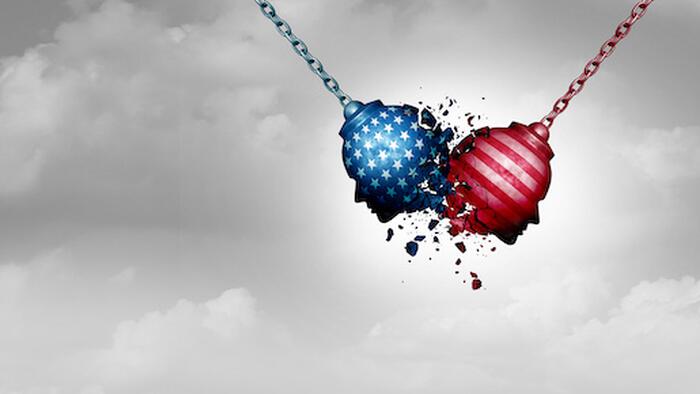In the context of the 2024 presidential election in the United States, Doug Casey acknowledges the history of electoral disputes in the nation. Notable examples include the 1960 election between John F. Kennedy and Richard Nixon, where alleged voter fraud was reported in Chicago, and the contested 2000 election between George W. Bush and Al Gore, which faced complications from ballot-counting issues in Florida. Casey also references Hillary Clinton’s accusations against Donald Trump following the 2016 election results. He anticipates a continuation of disputes surrounding elections, suggesting that no matter the victor, the losing side—whether Democrat or Republican—will likely contest the election, leading to bitterness and potential violence. Casey believes that the extreme polarization within American society is unprecedented, fostering animosity between opposing political factions.
Drawing parallels between contemporary America and China’s Cultural Revolution, Casey suggests that the United States is undergoing a similar cultural upheaval. He describes the ongoing “Woke Revolution” as an effort to dismantle traditional values and institutions, reminiscent of the Chinese revolutionary campaign against outdated customs and ideas. Although there are reactions against this radicalism, Casey observes that the opposition lacks a coherent ideological framework to rally around, often merely reacting to excesses rather than proposing viable alternatives. He expresses a hope for Trump’s victory in the upcoming election, arguing that while Trump is not a profound solution to the underlying issues, he embodies a cultural conservatism that resists radical transformation.
Shifting to geopolitical dynamics, Casey highlights the importance of the U.S. military as the only remaining effective institution within the federal government. However, he notes that the military is increasingly influenced by political considerations and “woke” ideologies, a trend he finds concerning. Casey predicts a grim future, suggesting that the U.S. military, with its vast resources, may engage in global conflicts that could escalate into a World War III scenario. Citing unrest in regions such as Gaza and Ukraine, he warns that any number of events could ignite military involvement that leads to serious consequences, with numerous U.S. bases around the world creating a backdrop for unpredictable developments.
On the financial front, Casey predicts an upward trend in interest rates, which he sees as necessary to balance out the excesses of previous monetary policy. With rates having declined over several decades, he asserts that they cannot remain historically low given the inflationary pressures from the broad money supply. Despite the short-term challenges associated with rising interest rates, he emphasizes the necessity for a more sustainable financial environment focused on savings rather than rampant consumerism. He advises against investing in stocks and bonds, particularly real estate, which may suffer as mortgage costs increase. Casey’s financial outlook suggests a tumultuous market ahead, largely influenced by external economic factors.
In light of the turbulent political, cultural, and financial landscape, Casey has actionable advice for individuals seeking stability. He advocates for liquidity and preparedness, recommending that people store essential goods while also diversifying their savings into tangible assets such as gold, silver, and Bitcoin. As he envisions chaotic market conditions, he stresses the development of speculative skills as essential for navigating uncertainty in investments. He remains optimistic about the potential of resource stocks, particularly junior producers, to thrive amidst broader market struggles, believing there could be significant returns for investors willing to engage with these higher-risk opportunities.
Overall, Doug Casey asserts that the United States is at a significant crossroads, facing potential crises across various sectors of society. He warns that many individuals are ill-prepared for the economic upheaval he predicts, but he has provided resources through a report aimed at guiding people on how to brace themselves for an impending economic collapse. His commentary reflects a broader apprehension regarding the stability of American democracy, culture, and the economy. As the nation approaches the next election, the prevailing sentiment is one of uncertainty, with significant implications for the future health of the United States and its global standing.

